Ogilvy Shanghai creates Care Codes for Shanghai Municipal Government to help reconnect 140 Million Elderly in China to the Digital World
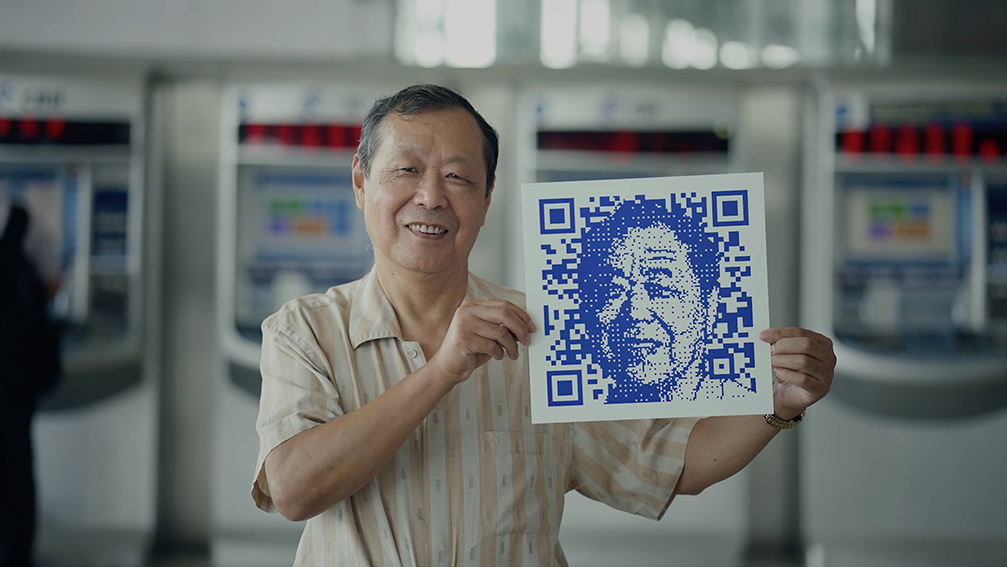
From buying groceries and booking a train ticket to making a medical appointment and hailing a taxi, today everything is done on our mobile phones. But, for the 140 million elderly in China who don’t know how to use a smartphone, the digitalization of services, accelerated by the pandemic, has left them totally isolated. To reconnect them to the digital world, Ogilvy Shanghai re-imagined the QR code in this latest campaign.
The QR code, which can often evoke frustration and fear amongst the senior generation, was re-imagined into the Care Code (乐龄码), a smiling symbol which the elderly can use to reach simplified versions of China’s most common digital tools including Didi and Alipay, facilitating their access to essential services.
The campaign supports the collective efforts from the CPC Shanghai Municipal Committee’s Bureau of Veteran Cadres, the Shanghai Spiritual Civilization Construction Commission Office, the Shanghai Health Commission, the Shanghai Economy and Informatization Commission, the Shanghai Bureau of Communication Management and the Shanghai Association for Science and Technology to create a more senior-friendly society and narrow the digital divide.
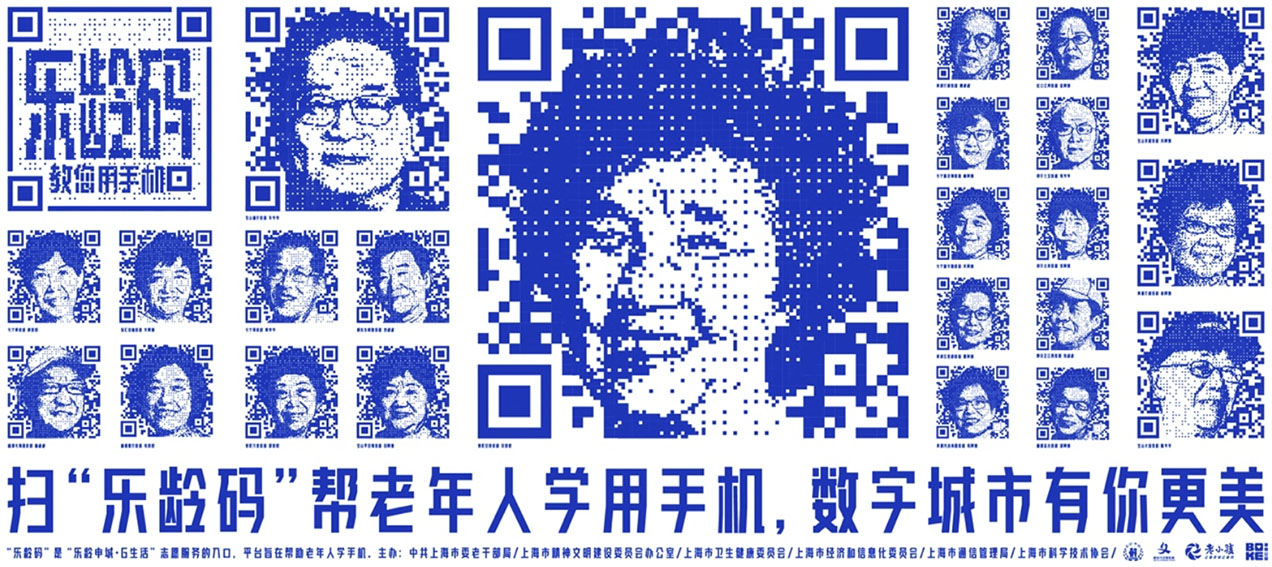
Unlike traditional black and white QR codes, Care Codes feature smiling faces of local elders.
The blue Care Codes use smiling portraits of local seniors and act as branded logos for all initiatives geared towards helping the elderly integrate into the digital world. By scanning the Care Code, users can access simplified versions of China’s essential mobile tools, including ride-hailing app Didi and payment platform Alipay. The Care Code also leads users to the “Le Ling Shen Cheng G Life” (乐龄申城G生活) WeChat service account, a comprehensive learning platform where seniors can acquire useful knowledge and digital skills to make everyday life easier through video tutorials and interactive games. Through the platform, elders can consult retirement related information and book offline classes hosted in their neighbourhood.
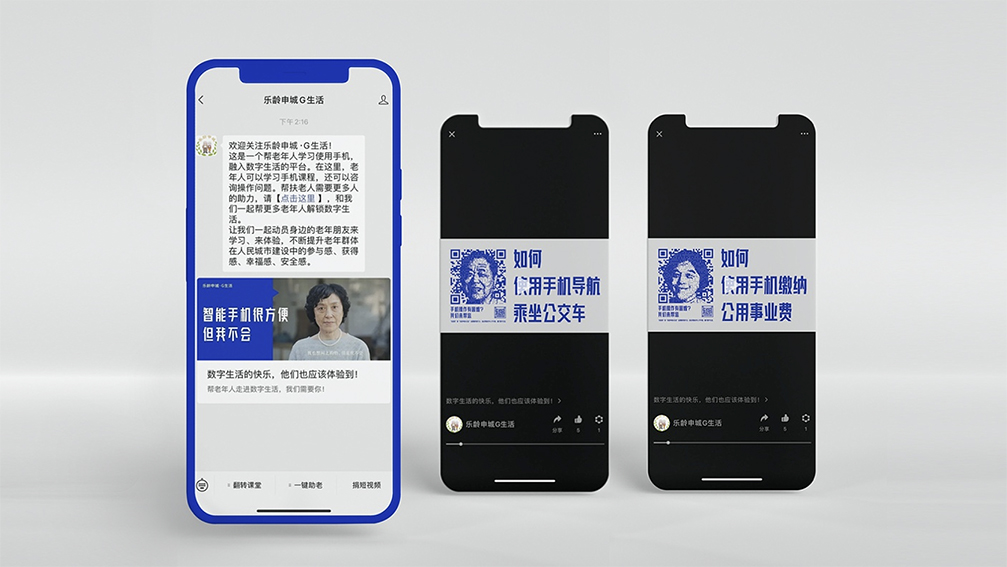
The Care Codes will also be displayed in key locations across Shanghai’s 16 districts, including community centres, subway stations, banks and service halls of top telecommunication carriers to indicate the presence of volunteers to assist the elderly with anything from paying their utility bills to making online appointments.
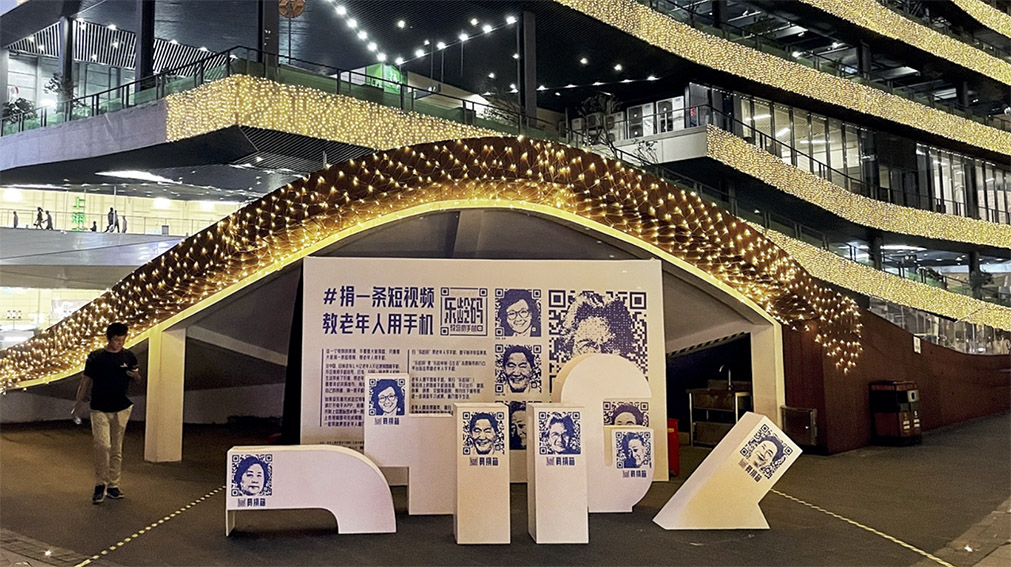
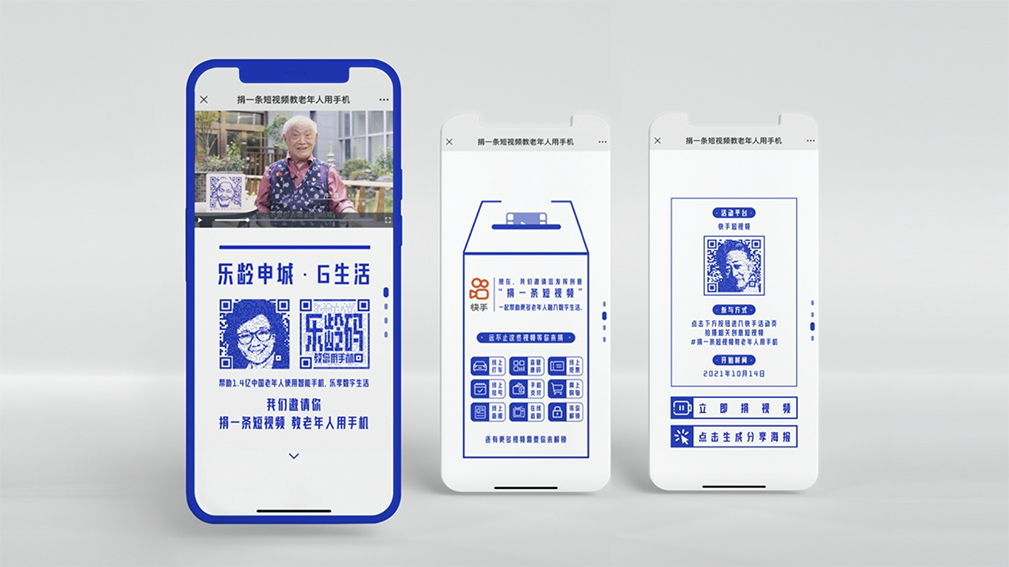
On China’s Double Ninth Festival (October 14), a traditional festival for young people to show their respect for older generations, local government units and Ogilvy Shanghai collaborated to encourage inter-generational knowledge transfer by launching a creative digital donation campaign. Taking into account China’s silver generation’s love for short video content, we partnered with Kuaishou to encourage Chinese youngsters, who are typically prolific content creators, to donate a short video teaching seniors how to use smartphones in daily life scenarios. 6 celebrity ambassadors were recruited to promote the initiative alongside livestreaming star Austin Li.
The campaign doesn’t stop here – a small portable smart device, the “Care Key” is currently under development and set to launch in the next few months to further help seniors with mobility issues and those who do not know how to use their smartphone. Through this device, users will be able to dial a service hotline and send their location information to their relatives should they get lost in the city.
A story of how creativity and technology can create a bridge between generations, making life easier for digitally disadvantaged groups.

1 Comment
Can someone make a simplified Amazon for me please!